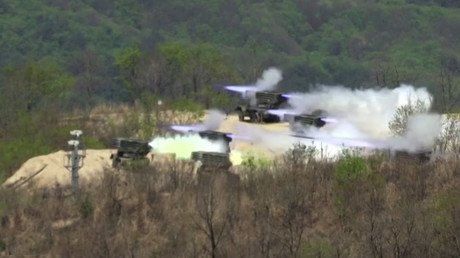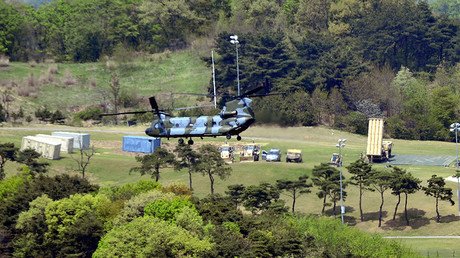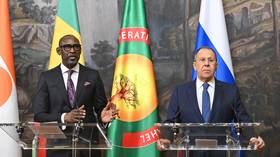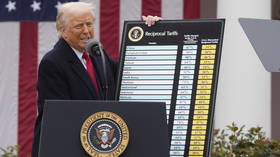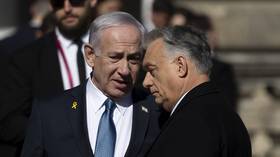N. Korea vows to bolster its nuclear arsenal ‘at maximum speed’
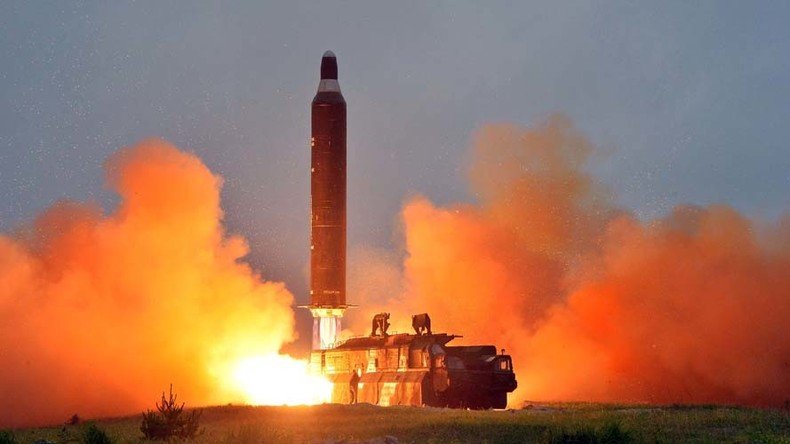
North Korea has promised to bolster its nuclear arsenal “at the maximum pace,” while blaming America for bringing the region to a brink of a nuclear war with “aggressive” joint US-S. Korea drills.
On Monday, North Korea’s Foreign Ministry branded the US “the chieftain of aggression and war, and harasser of peace who is escalating tension.”
While the confrontation “between the DPRK and the US has lasted for more than half a century… the US aggression hysteria has never reached such a height and the situation on the Korean peninsula has never inched close to the brink of nuclear war as in the period of the recent drills,” a spokesman for the country’s Foreign Ministry said, as quoted by official North Korean news agency KCNA.
“Now that the US is kicking up the overall racket for sanctions and pressure against the DPRK, pursuant to its new DPRK policy called ‘maximum pressure and engagement,’ the DPRK will speed up at the maximum pace the measure for bolstering its nuclear deterrence,” the statement reads.
North Korea’s Foreign Ministry praised its country’s “powerful nuclear force,” which said is the only thing preventing the US from committing “the same brigandish aggression act in Korea as what it committed against other countries.” Meanwhile, the North’s two most recent missile tests ended in failure, according to the US and South Korean militaries, which track such activities.
The new comments come as the US is mulling the possibility of renegotiating the cost of stationing its THAAD anti-missile systems in South Korea, for which Washington is currently footing the bill.
US-South Korea relations were overshadowed by comments President Donald Trump made during an exclusive interview with Reuters last week, when he suggested that South Korea should pick up the $1 billion tab for the THAAD deployment that has greatly contributed to the current escalation in tensions on the Korean peninsula.
“I informed South Korea it would be appropriate if they paid. It’s a billion-dollar system,” said Trump.
“It’s phenomenal, shoots missiles right out of the sky,” he added.
While Trump’s suggestion is in line with his electoral promises to make US allies pay for Washington’s protection, it met with firm rejection in South Korea, which flatly denied there was any possibility it would pay for the system.
South Korean media then reported that US National Security Advisor H.R. McMaster had called his counterpart, Kim Kwan-jin, allegedly to assure him that the US would fork out for the THAAD system. However, McMaster denied “contradicting the president” when speaking on Fox News Sunday.
“The last thing I would ever do is contradict the president of the United States, you know? And that’s not what it was. In fact, what I told our South Korean counterpart is, until any renegotiation, that the deal is in place. We’ll adhere to our word,” McMaster said.
This new comment caused another round of harsh blowback from South Korea, as the country’s Defense Ministry insisted that the THAAD deal won’t be renegotiated, as it is part of the Status of Forces Agreement (SOFA), which regulates the stationing of the US’ whole military contingent in the South.
“The issue of funding for THAAD is part of an agreement reached between South Korea and the United States, and is stipulated in the agreement on the status of US forces in South Korea,” Minister of National Defense Moon Sang-gyun said, as quoted by Yonhap news agency.
“Our view is that it can’t be an issue for renegotiation,” he added.
